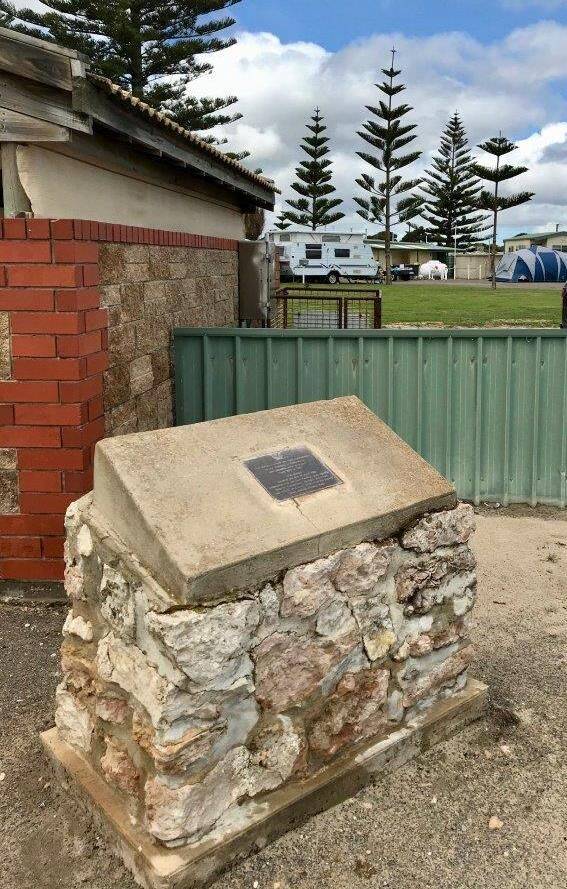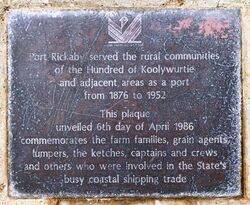
Home » Themes » Technology » Industry
Coastal Shipping TradePrint Page 
In 1876 the port was established as a shipping place and named after Thomas Rickaby, an early pioneer from Ireland. Thomas arrived in South Australia in 1858, joining the South Australian Mounted Police before resigning and settling on Yorke Peninsula, and was the first president of the Minlanton Agricultural Show. The greater area served by the point is known as Koolywurtie, which has an Aboriginal translation of "Where rocks meet the sea".
In 1879 a jetty was constructed to a length of 405 feet (123 m) at a cost of £1,285. It was lengthened three times to a total length of 820 ft (250 m) in 1949.
The farmland served by the port was approximately 34,000 acres (140 km2). Bagged grain was brought in horse-drawn wagons, and later by motor truck to be weighed and stacked in large mouse-proof sheds and yards.
Much of the grain loaded into ketches, such as the Falie, Waimana, Coringle and Eva Lita was transferred into "windjammers" with names such as the Passat, København and Pamir which were anchored off Port Victoria. These ships then made the overseas voyage via Cape Horn to Europe. The last windjammer to leave Port Victoria was the Passat, which departed on 2 June 1949. The last windjammer to visit Port Rickaby was the five masted Kobenhaven in 1924, carrying 65,000 bags of wheat (7,091 tonnes).
Location
| Address: | Waimana Circuit, Port Rickaby, 5576 |
|---|---|
| State: | SA |
| Area: | AUS |
| GPS Coordinates: | Lat: -34.672608 Long: 137.494589 Note: GPS Coordinates are approximate. |
Details
| Monument Type: | Plaque |
|---|---|
| Monument Theme: | Technology |
| Sub-Theme: | Industry |
| Approx. Event Start Date: | 1876 |
| Approx. Event End Date: | 1952 |
Dedication
| Actual Monument Dedication Date: | Sunday 6th April, 1986 |
|---|
150
1836 South Australia 1986
Port Rickaby served the rural communities
of the Hundred of Koolywurtie
and adjacent areas as a port from 1876 to 1952
This plaque
unveiled 6th day of April 1986
commemorates the farm families, grain agents,
lumpers, the ketches, captains and crews
and others who were involved in the State`s
busy coastal shipping trade






